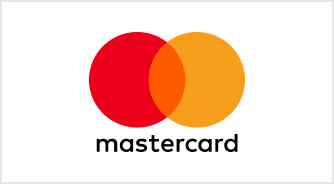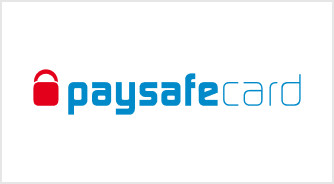Poker Cash Games vs Tournaments
While there are many variations of poker available for you to choose from, all poker games are initially divided into two categories: cash games vs tournaments. In our complete expert guide we will discuss the fundamental differences of these two styles of poker and give you the rundown of their unique characteristics. Our detailed information will help you decide for yourself which version of poker best suits your playstyle.
What Are Cash Games?
Cash games are your traditional poker game, where people play around the kitchen table. Cash games – also called ring games – are played at a single table with blinds that stay constant. Your buy-in is exchanged for the equivalent amount of chips; when you leave the table, you take your chips with you and can turn them in for cash.
Some of the most popular cash game variants include:
Texas Hold’em
Commonly just called “Hold’em,” this is the most popular version of poker today. In Hold’em, you start with two, face-down hole cards and as many as five shared “community” cards are dealt for all players to see. The winner is the player who makes the best five-card poker hand from any combination of their hole cards and the community cards.
Omaha Hold’em
Omaha poker is very similar to Hold’em. The betting structure is the same. There are two main differences: you are dealt four hole cards and you must make your best five-card combination using exactly two hole cards and three community cards. Of course, in any poker game, you can also win the hand if everybody else folds.
Omaha Hi-Lo
Like in Omaha, you are dealt four hole cards in Omaha Hi-Lo and you make your five-card hand from two hole cards and three community cards. The difference here is the player with the best, or high hand, wins half the pot, while the person with low hand wins the other half. The catch on the low hand is that the cards must be 8 or lower and straights and flushes do not count against you. The goal is to win both the high and the low hand to scoop the entire pot.
Seven Card Stud
In stud, you are dealt two hole cards and one face-up “door” card. Everyone must pay an ante and the player with the lowest door card pays the “bring in” to start the betting round. On the next three streets, the players still in the hand are dealt a card face up. On the seventh street, each player’s final card is dealt face down. The winner at showdown is the player with the best five-card hand made from their own seven cards.
Pros and Cons of Cash Games
Cash games are extremely popular and can be great fun. But like any game or form of entertainment, cash games are not necessarily for everyone. Below you will find the pros and cons of playing poke cash games:
Pros
- Chips are cash – Because every chip on the table is real money, it is very easy to determine how you are doing. There are no standings to look at or final tables to worry about. You can just gauge your session based on your chip stack.
- Focus on consistent strategy – The blinds always stay the same, you don’t have to think about the money bubble, and there is no short-stacked play unless you choose it. Thus, you can keep your focus on your own strategy and playstyle. Games stay consistent hour to hour, aside from players who come and go.
- Time flexibility – In cash games, you can come and go as you please and keep whatever hours you would like, especially online. You are your own boss, not tied to a tournament schedule.
- Downswings are smoothed out – Cash games are less of a rollercoaster ride vs tournament play. Sure, it is possible to lose money, but in the long run good players will be able to limit their losses. Even if you lose money, it might not be much. If you have a bad run of tournaments, you are walking away with nothing day in and day out.
Cons
- Lower reward – Just like the downswings tend not to be as bad in cash games vs tournaments, the upswings usually aren’t as great. On a good day, you might double or triple your buy-in in a cash game. In a tournament, however, you often have the chance to multiply it by hundreds of times.
- Competition is tougher – Cash games tend to be populated by regular cash game players. Tournaments, while also filled with tournament regulars, are filled with many more recreational players who are dreaming of the big score. Thus, you can exploit your competition more easily in tournaments vs cash games.
Best Online Poker Sites for South African Players
1st Deposit Bonus
$1,000
Casino Highlights
- Generous welcome bonus
- Fast withdrawal times
- Trusted online poker since 2003
Payment Methods






Casinos Software
What Are Tournaments?
A tournament is still poker – Hold’em is Hold’em and Omaha is Omaha – but the structure is quite different compared to a cash game. In a tournament, everyone buys-in for the same amount of money and receives the same number of chips (there are exceptions, but we won’t cover those here to keep it simple). The tournament ends when one player has all the chips, as opposed to a cash game that ends when the players leave.
Whereas the chips in a cash game represent actual money, tournament chips do not. Think of them as points used to keep score. You can’t take your tournament chips to the cashier and exchange them for money. The way you win money is to last long enough in the tournament, even if you lose all your chips.
Tournaments tend to pay 10% to 15% of the field, so even if you don’t come in first place and are eliminated, you can still win money. You just must survive longer than most of your opponents. To encourage players to act and speed up the tournament, the blinds increase at defined intervals.
There are several different types of poker tournaments, so let’s examine a few of the most common:
Freezeout
A freezeout tournament is the classic style of poker tournament. In a freezeout, you buy-in once and if you lose all your chips, that’s it. As we mentioned above, you can still win money if you lose all your chips, but you have to last long enough.
Re-buy
Also called “re-entry” nowadays, a re-buy tournament allows you to pay another buy-in to refill your chip stack if you get knocked out. Some re-buy tournaments allow unlimited re-entries, while others only permit one or two. Either way, re-entries are only allowed for a limited period, usually anywhere from about the first two to the first five blind levels.
Re-buy tournaments foster greater action, as players can take risks early, knowing they can re-enter. They also give an advantage to deep-pocketed players who have more money to afford re-buys.
Sit-and-Go
Sit-and-Go tournaments (abbreviated SnG or S&G) are usually single-table tournaments that pay one to three places. There are multi-table Sit-and-Go’s, mostly found at online casinos, but single-table is the most common. They are named as such because they are not scheduled. Players pay their entry, sit down, and when the last seat is filled, the tournament “goes.”
Satellite
Satellite tournaments offer seats in a more expensive tournament as prizes, rather than cash. The number of seats offered is based on the number of entries. For example, a $100 buy-in satellite would award an entry into a $2,000 tournament for every 20 players who enter ($100 x 20 = $2,000). Any additional prize pool that does not add up to another tournament seat is awarded as a smaller cash prize to runners-up. Satellites are a way for poker players to afford to enter a larger buy-in tournament for less money.
Shootout
Shootout tournaments are a bit like a combination of Sit-and-Gos and regular, multi-table tournaments. In a shootout, each table plays down to a single winner. The winners of each table then combine into new tables and again play down to one winner. This keeps going as long as there are new tables to create until there is one winner for the whole tournament.
Advantages and Disadvantages of Tournaments
Much like cash games, there are many pros and cons to poker tournaments.
Pros
- Potential Huge Returns – Most of the time you play in a large tournament, you either won’t win anything or win barely more than your buy-in, but when you do make a deep run, the upside is huge. In a cash game, even the best days will only usually net you two to three times your buy-in, but tournaments can pay dozens or even hundreds of times your buy-in if you do very well.
- Varying strategy – The early, middle, and end stages of a tournament require distinctly different strategies, which makes things more interesting than in a cash game. Longer play requires you to develop more complex strategies.
- Worse competition – Large tournaments tend to attract more recreational players than cash games because of the allure of a major score. Worse competition means more opportunity for you, the skilled player, to accumulate chips and move up the money board.
- Intensity of competition – Because of the “do or die” aspect of tournaments, the intensity is ratcheted up vs cash games. One wrong move or one unlucky card can turn the tide in an instant. Because tournaments are a race to the finish, they feel more like sporting events than cash games, often making for a more fun contest.
Cons
- Unforgiving – You can play great for hours, but just one or two bad luck hands can send you home empty-handed. The swings can be stomach-wrenching, especially for those trying to play tournaments for a living.
- Time commitment – Tournaments, aside from Sit-and-Gos, run on schedules, which mean you are locked into those schedules. Once you start a tournament, you may have to play for hours, even days (you still get to sleep, don’t worry), vs cash games, where you can come and go as you please.
Should You Play Cash Games or Tournaments?
The obvious question now is cash games vs tournaments: which should you play? It all depends on your mindset and the type of poker player you are.
One thing not mentioned above is bankroll. If your poker bankroll is on the lighter side, cash games are the better bet. Tournament players need to weather prolonged downswings more often than cash game players and thus need a larger bankroll. In cash games, even a bad day can mean just a small loss or even a small win, which won’t have a large effect on your bankroll.
If you are someone who prefers a steady, more predictable game (as much as poker can be predictable), cash games are up your alley. You can focus on your strategy and style without worrying about escalating blinds, money bubbles, final tables, or playing short-stacked. It’s more of a grind, something lots of people like. Tournaments get the heart pumping more, as disaster looms with the turn of a card, yet glorious paydays await at the end of the rainbow. The different tournament stages and changing strategy is thrilling for many.
Finally, your choice of cash games vs tournaments is going to be dependent on your availability. If you have the time and patience to potentially sit for hours, then you can handle tournaments. Even single-table online Sit-and-Gos can take an hour at times. If your time is limited, stick to cash games, since you can get up from the table whenever you want and just take your chips with you.
In the end, there is no right or wrong answer to which to choose between cash games vs tournaments. The important thing is to play whichever type of game you enjoy the most. Just remember to have fun and play responsibility and within your means.
FAQs
Is it better to play cash games vs tournaments?
That answer is up to you. Neither are better than the other. The decision of cash games vs tournaments should come down to whichever you enjoy more.
Are cash games harder than tournaments?
Again, there is no correct answer here. The competitors in cash games tend to be more difficult than in poker tournaments, but at the same time, cash games are generally not as stressful as tournaments. Tournaments come with wilder winning and losing streaks.
How many big blinds should you start with in a cash game?
No-Limit Hold’em cash games usually require a buy-in of 20 to 100 big blinds. We recommend starting on the high end of that range, 100 big blinds whenever possible. It gives you more opportunity to make skilled plays and provides a buffer for some losses.
Do blinds go up in cash games?
No, blinds remain constant in cash games.
Are poker tournaments only for experienced players?
No, anyone can play in a poker tournament. In fact, the level of competition is usually worse in a tournament because so many inexperienced players are chasing their dream of a major payday.

